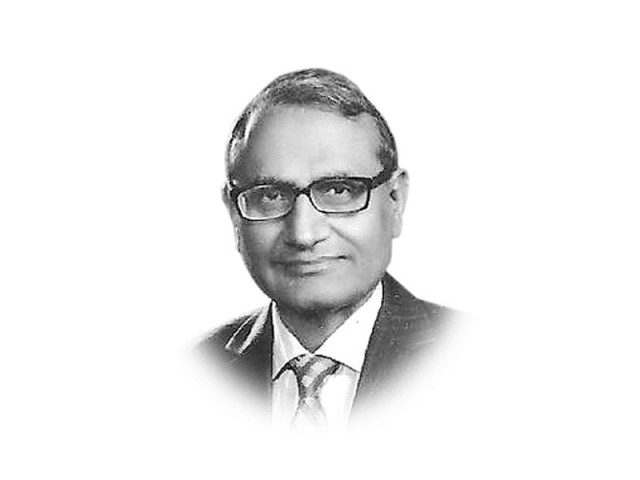Pakistan’s fudged GDP figure
As fiscal data is produced by ministry of finance, not PBS, other means will have to be found to ensure transparency.

pervez.tahir@tribune.com.pk

On the budgetary side, the fiscal deficit continues to be the Achilles’ heel. When the IMF is looking over the shoulder of the government, it becomes the centre point of policy. In the absence of meaningful tax reform and expenditure management, all kinds of tricks are played to show it at the targeted level. Shahbaz Rana (The Express Tribune, June 14) has stolen the gimmickry of treating the Saudi grant and the other development expenditure in a way that scales down the fiscal deficit. What is more worrying, however, is the massive surplus imposed on the provincial budgets. In the last budget, this surplus was only Rs23 billion. The revised figure, not given in the budget, is around Rs200 billion. In the budget for 2014-15, the provincial surplus is pitched even higher at Rs289 billion. As the increase in the provincial share in the National Finance Commission resources is Rs218 billion, the practice means that the federal government will take back from the provinces more than what it gave as additionality. It works to cover up the federal government’s inability to restrain its current spending and development enthusiasm despite the devolution of most development activity to the provinces. Also, it enables continued bestowing of exemptions and exceptions in the tax structure to vested interests. For the provinces, this back-hand deal involves development expenditures lower than what they would have been. Social sector and agriculture, the sectors that relate to the poor most, fall wholly in the provincial domain.
The icing on the fudged cake is the poverty data. Although Pakistan is seriously lagging behind on most MDG targets, the one related to reducing poverty to 13 per cent by 2015 was achieved in 2010-11! At least that is what the latest Economic Survey claims by estimating the headcount ratio at 12.4 per cent. At his post-budget press conference, the finance minister placed over 50 per cent of Pakistanis below the poverty line. He was referring to the $2 a day poverty estimates by the World Bank. Who does one believe? Kis ka yaqeen ki jeeaye kis ka na ki jeeaye (Who should be believe, who should we not believe).
The autonomy of the PBS was meant to overcome this habituation of fudging. Let the PBS be under the CCI rather than the ministry of finance, with professional board members representing the provinces as well as the federal government. As fiscal data is produced by the ministry of finance, not the PBS, other means will have to be found to ensure fiscal transparency.
Published in The Express Tribune, June 20th, 2014.
Like Opinion & Editorial on Facebook, follow @ETOpEd on Twitter to receive all updates on all our daily pieces.
















COMMENTS
Comments are moderated and generally will be posted if they are on-topic and not abusive.
For more information, please see our Comments FAQ